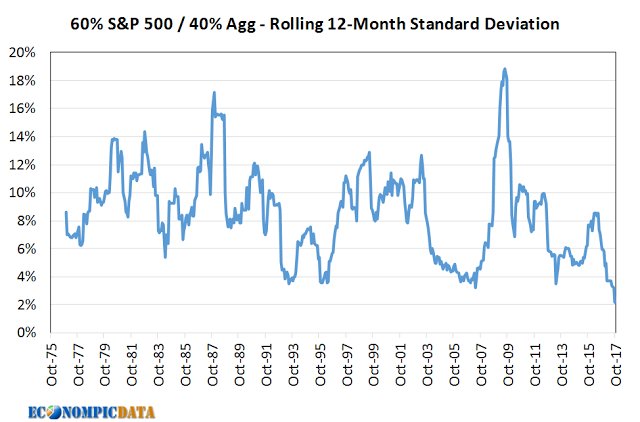Join the few who will take advantage of what's about to happen. The same few who profited handsomely when billions were lost in the last global economic crisis almost a decade ago rather than those who simply follow the herd.
For most people these warnings are like the graphic images printed on today's packets of cigarettes, they spell out the dangers and yet all the same people are still smoking.
Warnings about an impending market crash are being made by people who predicted with considerable accuracy in 2006 and 2007 what was ahead when the US sub-prime mortgage market collapsed and triggered the global financial crisis.
The one thing these analysts can't predict is an exact time and place for when the crash will happen. It's the same reason people continue to smoke; nobody can say with certainty the number of cigarettes required to kill a person.
So, trading continues regardless until the day the sudden dramatic drop in prices exceeds the 10 per cent threshold that officially marks the point that the crash has arrived.
Just as smokers only decide to stop when the physician says: "Mr Smith, I regret to inform you that you have lung cancer."
Swiss investor Marc Faber, also known as "Dr Doom", predicts that stocks are set to plunge by 40 per cent or more. Mr Faber, the editor of 'The Gloom, Boom & Doom Report' recently told CNBC: "We have a bubble in everything."
His caution is echoed by Nobel Prize-winning economist Robert Professor Shiller who has urged investors to tread cautiously because market valuations are at "unusual highs".
In a recent interview with CNBC, he said: "We are at a high level, and it's concerning," highlighting that the only times valuations have been higher were in 1929 and 2000.
Mark Zandi is chief economist at Moody's Analytics. In August he joined the chorus of analysts preaching caution after determining that the stock market is overvalued.
In an article in Fortune he said: "The stock market is due for a significant correction" adding, "stock returns in the next several years will be very pedestrian if they increase at all."
Last month HSBC issued a Red alert warning. They're looking at two key levels: 17,992 in the Dow Jones Industrial Average and 2,116 in the S&P 500.
"As long as those levels remain intact, the bulls still have a slight hope. But should those levels break and the markets close below, which now seems more likely, it would be a clear sign that the bears have taken over and are starting to feast," said head of technical analysis Murray Gunn. "The possibility of a severe fall in the stock market is now very high," he added.
However, according to Bill Blain, a strategist at Mint Partners, this time bond markets will trigger the mayhem.
According to Blain, stock markets don't matter. "The truth is in bond markets. And that's where I'm looking for the dam to break. The great crash of 2018 is going to start in the deeper, darker depths of the credit market," he said.
"I'm convinced bond markets are the real bubble we should be watching, and it's going to start in high yield..."
Blain's opinion on a bonds inspired crash is echoed by Niall Ferguson in his piece in The Sunday Times this month.
Ferguson was warning about the sub-prime mortgage crisis over a year before the crash occurred. He spoke publicly about it on many occasions and in his book The Ascent of Money spelling out the dangers in graphic detail, which was published just as his predictions were coming true.
He sees a bonds sell off as a result of a series of events that will bring about the next economic crisis.
Ferguson firstly points to the effect of interest rate increases by the big four central banks -- the Fed, European Central Bank, Bank of Japan and Bank of England -- when the rate of economic expansion has already started to slow.
He explains: "History shows that monetary tightening acts with long and variable lags. But it does act, often on stock markets."
Ferguson also points to global wage and inflation increases as the second contributory factor as we approach a demographic inflection point where the ratio of workers to consumers has peaked.
This has led Ferguson to the conclusion that the end of the 35-year bond bull market is imminent. "Bonds will sell off; long-term rates will rise. The question is whether inflation will increase as much or more. If not, then real (inflation-adjusted) interest rates will rise, with serious implications for highly indebted entities."
He points to two big economies, China and Canada, which are in particular trouble. You should probably add Australia to that list given its level of connectedness to China.
Despite being described with the same words, no two financial crises are the same. The next one will differ from the last one, that's why they are so hard to put into an actionable timeframe. But the inevitability that there will be a next one increases as the monetary medication begins to be withdrawn, which makes the need for taking the right measures now all the more important.
FXB Trading's experts are equally convinced that a significant market correction is imminent. They've devised a strategy to profit from the situation as many notable forward-thinking analysts did ahead of the 2008 sub-prime mortgage crash in the US which then caused the subsequent global financial crisis.
In the 2008 scenario their investment returned ratios of between 1:10 to 1:20. FXB's traders will replicate the trade, but will also hedge their position.
Until the market crashed in 2008 those US traders were in a losing position, but by hedging it is possible to avoid losses until the crash occurs.
- Source, The Digital Journal


